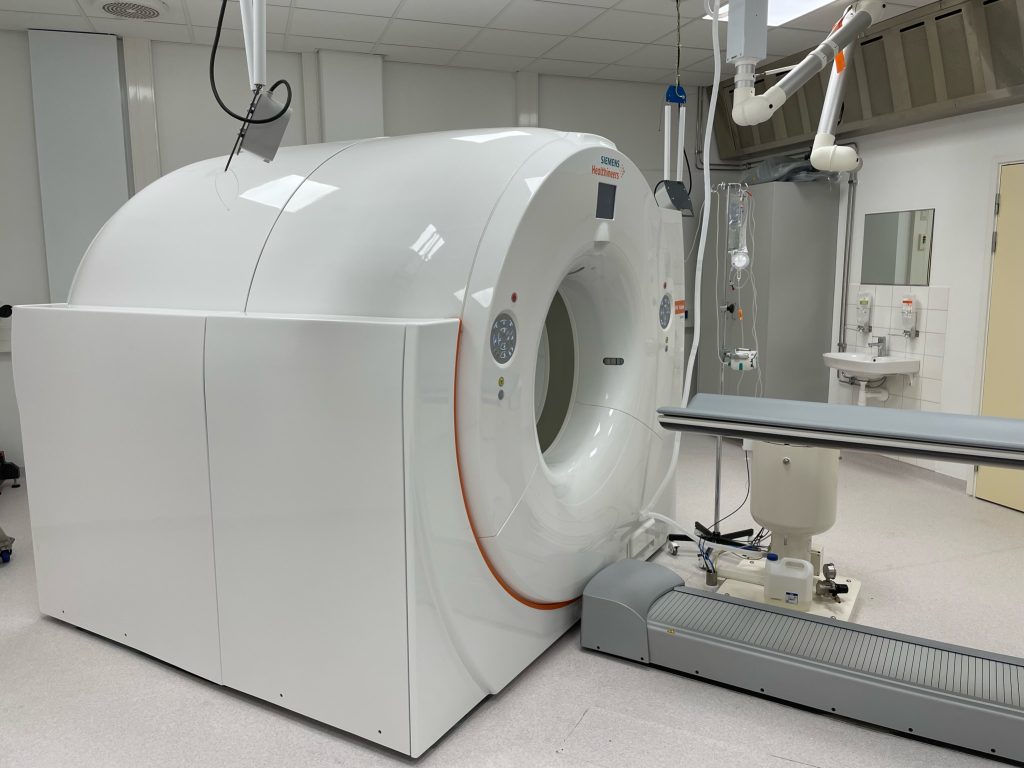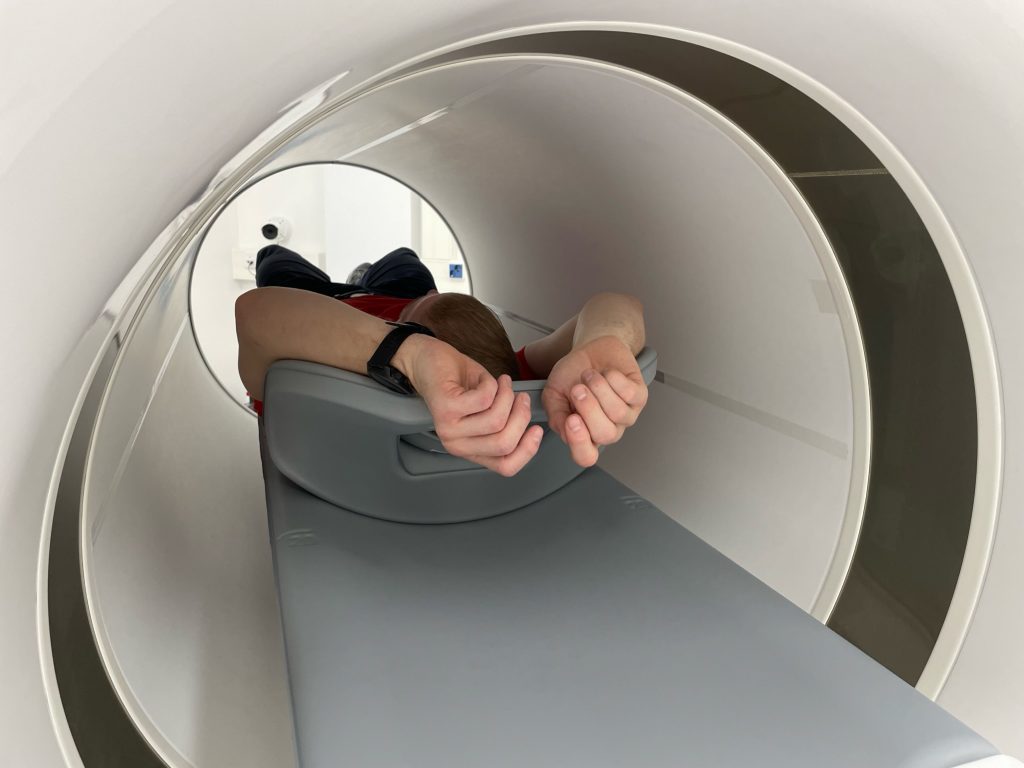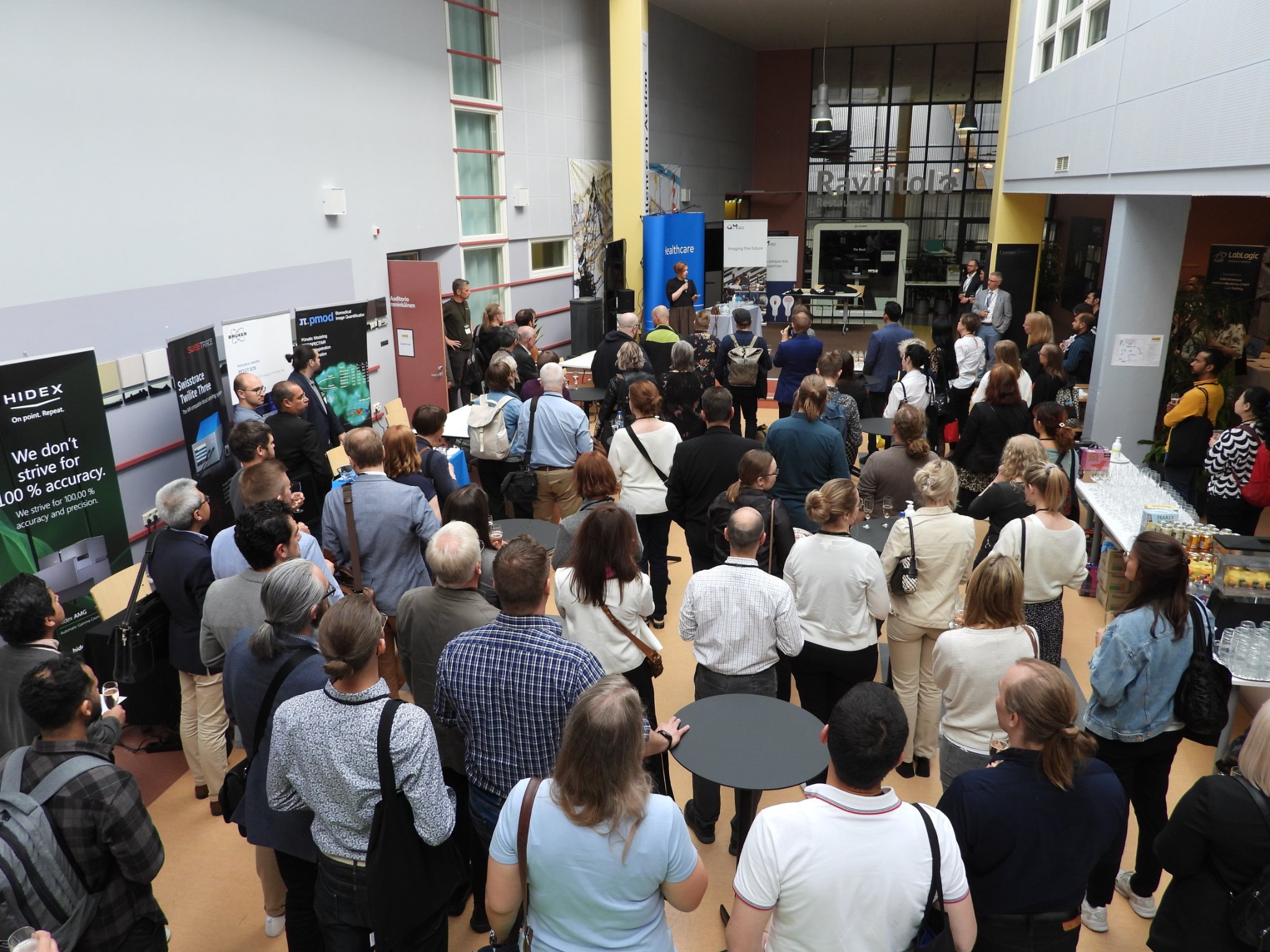Siemens Biograph Vision Quadra, the new generation total-body PET scanner has been introduced at Turku PET Centre. The revolutionary feature of the new device is that it scans everything that is happening in the body at once and it instantly registers what is happening in the system at the time of imaging, says the Director of the PET Centre, Professor Juhani Knuuti. Up until today, it has not been possible to obtain a full-body image at one go, as the traditional PET scanners have only been able to scan 20-25 cm slices of the subject at a time.

“Now we are able to see how all the organs interact with each other at the time of scanning. When we scan the heart of a coronary artery disease patient, for the very first time, we can simultaneously see what is happening in the brain,” Knuuti explains.
The new scanner is used for both scientific research and clinical work. Clinical use has already begun and scientific research usage of the scanner will begin in early June.
The sensitivity of the new full-body PET scanner is 10 to 20 times better than that of a standard PET scanner. It is also faster: with the current PET scanners, it takes about half an hour to scan a person, while the new scanner requires only a few minutes to create a full-body image.
“The sensitivity is one of the scanner’s great advantages. It is likely that we will now be able to detect very small cancer metastases with higher sensitivity. The radiation exposure for the patient can also be significantly reduced as we can reduce the dose of tracer used. This also means that we can even scan children in a safer manner than ever before,” Knuuti says.

Faster and More Sensitive
The sensitivity of the new full-body PET scanner is 10 to 20 times better than that of a standard PET scanner. It is also faster: with the current PET scanners, it takes about half an hour to scan a person, while the new scanner requires only a few minutes to create a full-body image.
– The sensitivity is one the scanner’s great advantages. It is likely that we will now be able to detect very small cancer metastases with higher sensitivity. The radiation exposure for the patient can also be significantly reduced as we can reduce the dose of tracer used. This also means that we can even scan children in a safer manner than ever before, Knuuti says.
According to Knuuti, the total-body PET scanner will be widely used to study diabetes, coronary artery disease, obesity, and multiple sclerosis, among others. For brain research, the total-body PET scanner is a valuable addition as it allows for completely non-invasive examinations. The device can also be used to study the effects of exercise better than before.
If you want to use this technology to enhance your research, contact the FIBI Node (Contact-FiBI@eurobioimaging.fi) and submit a research plan via the Euro-BioImaging website https://www.eurobioimaging.eu/.


